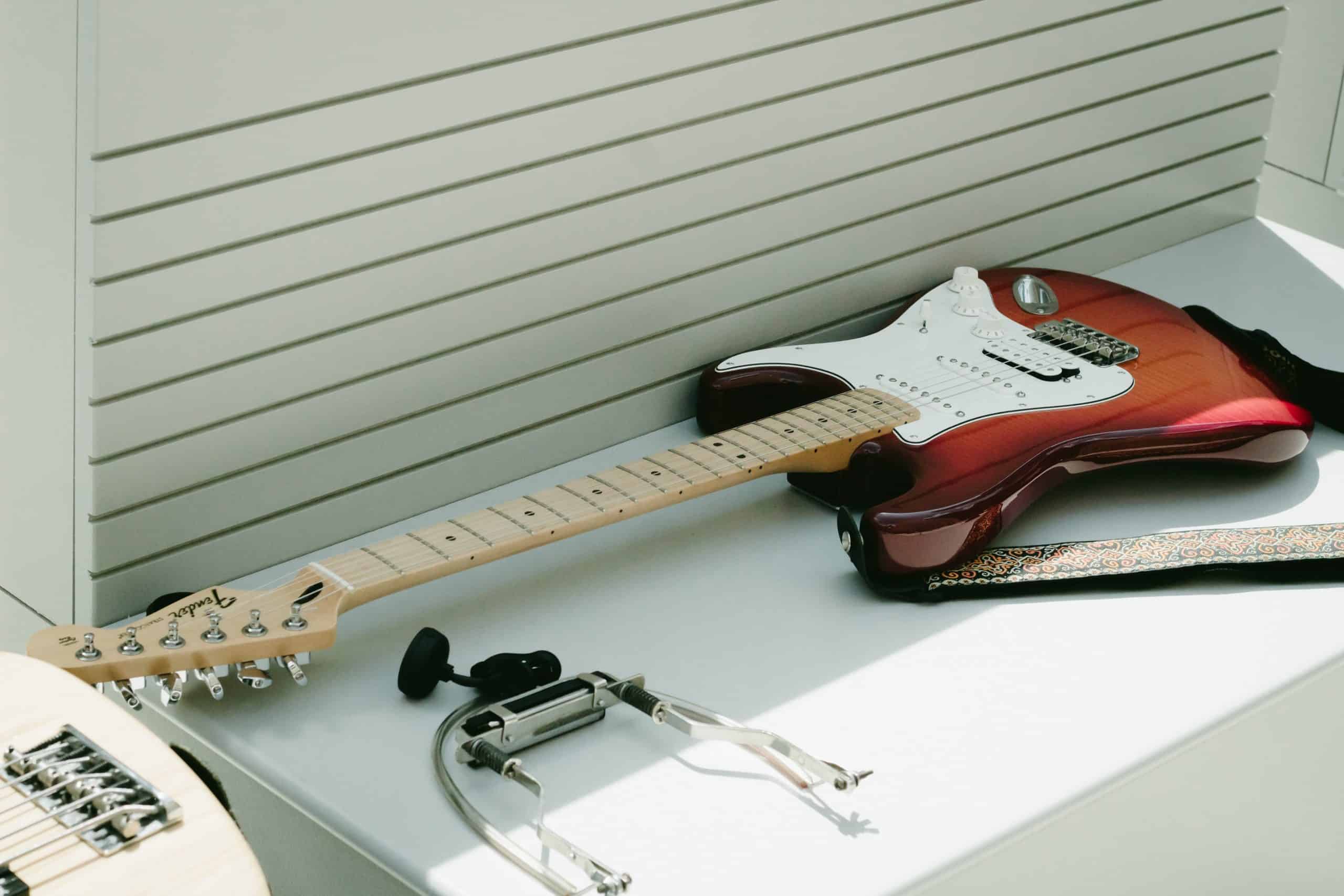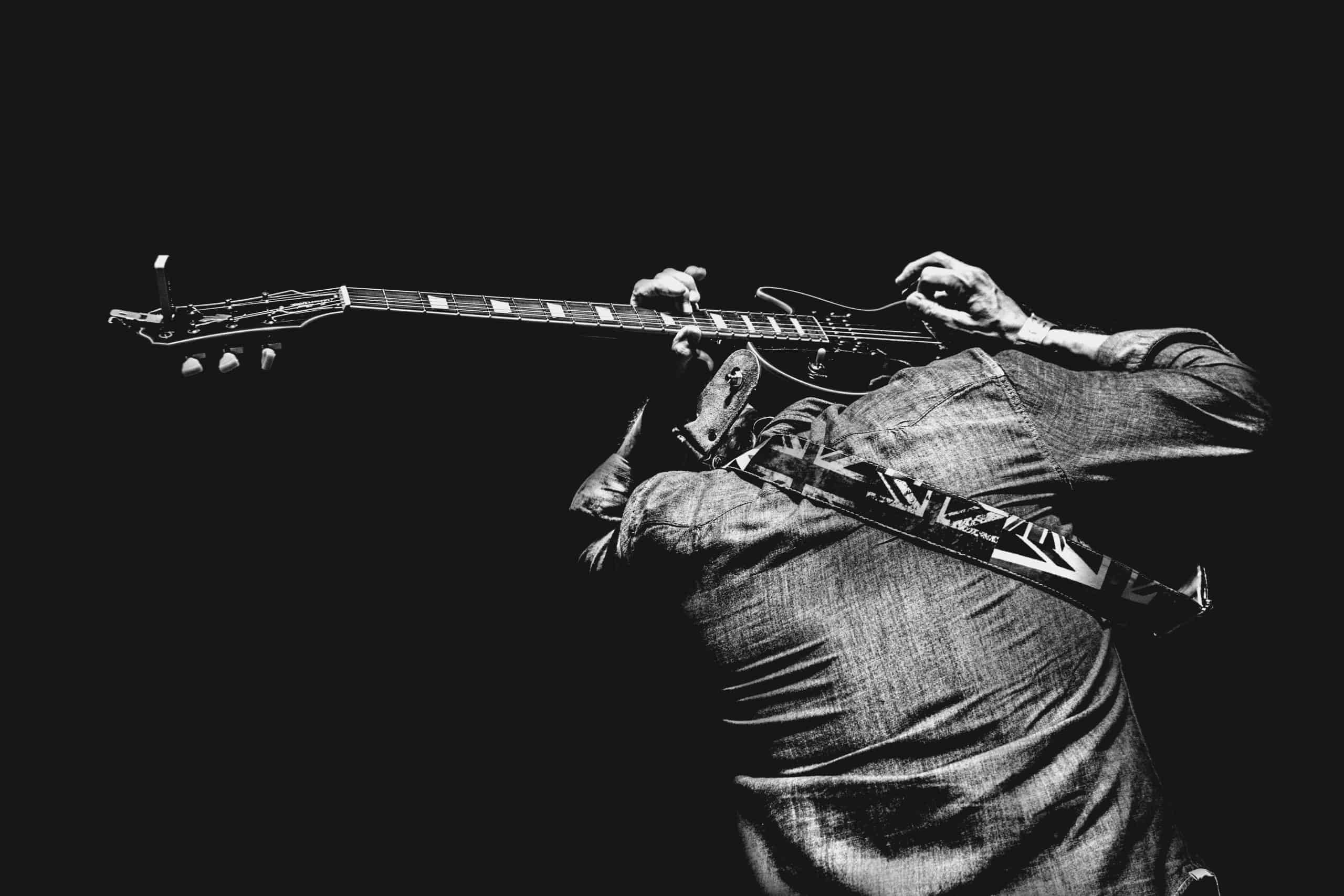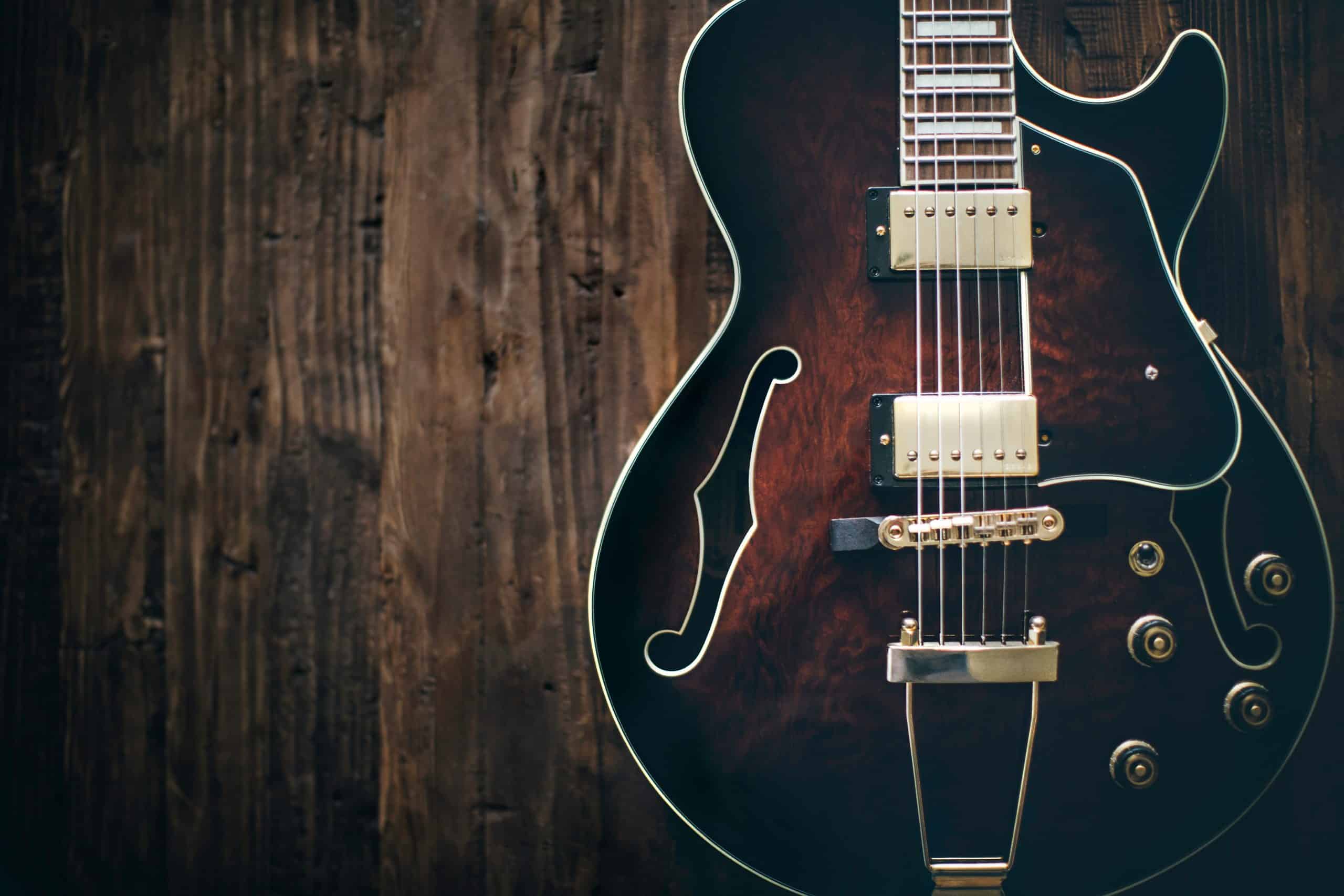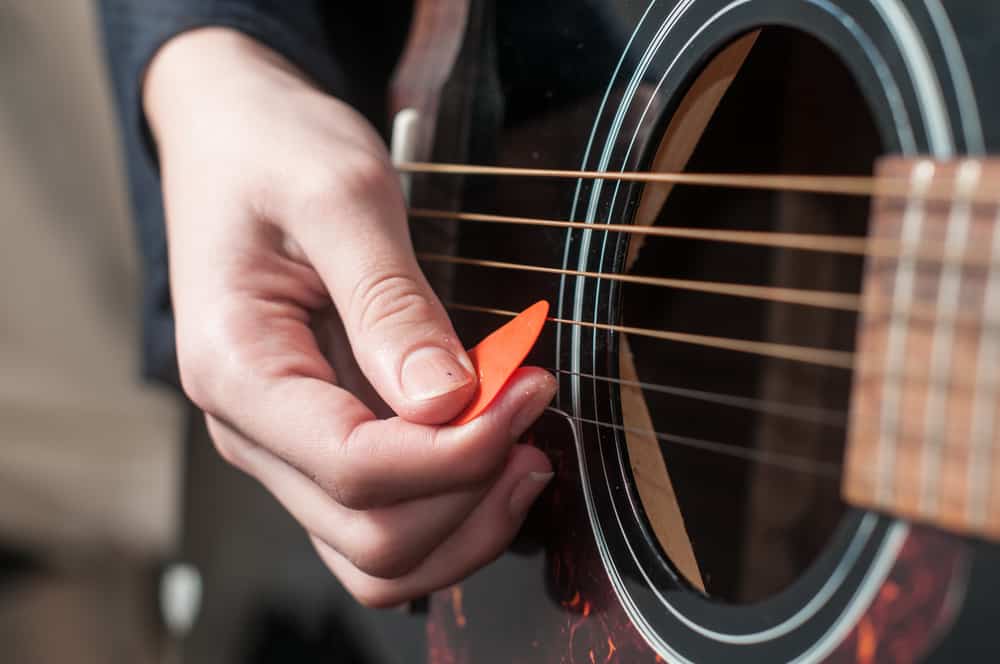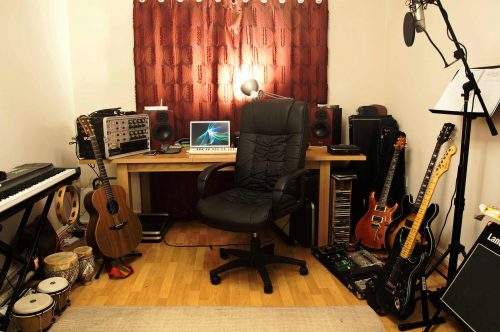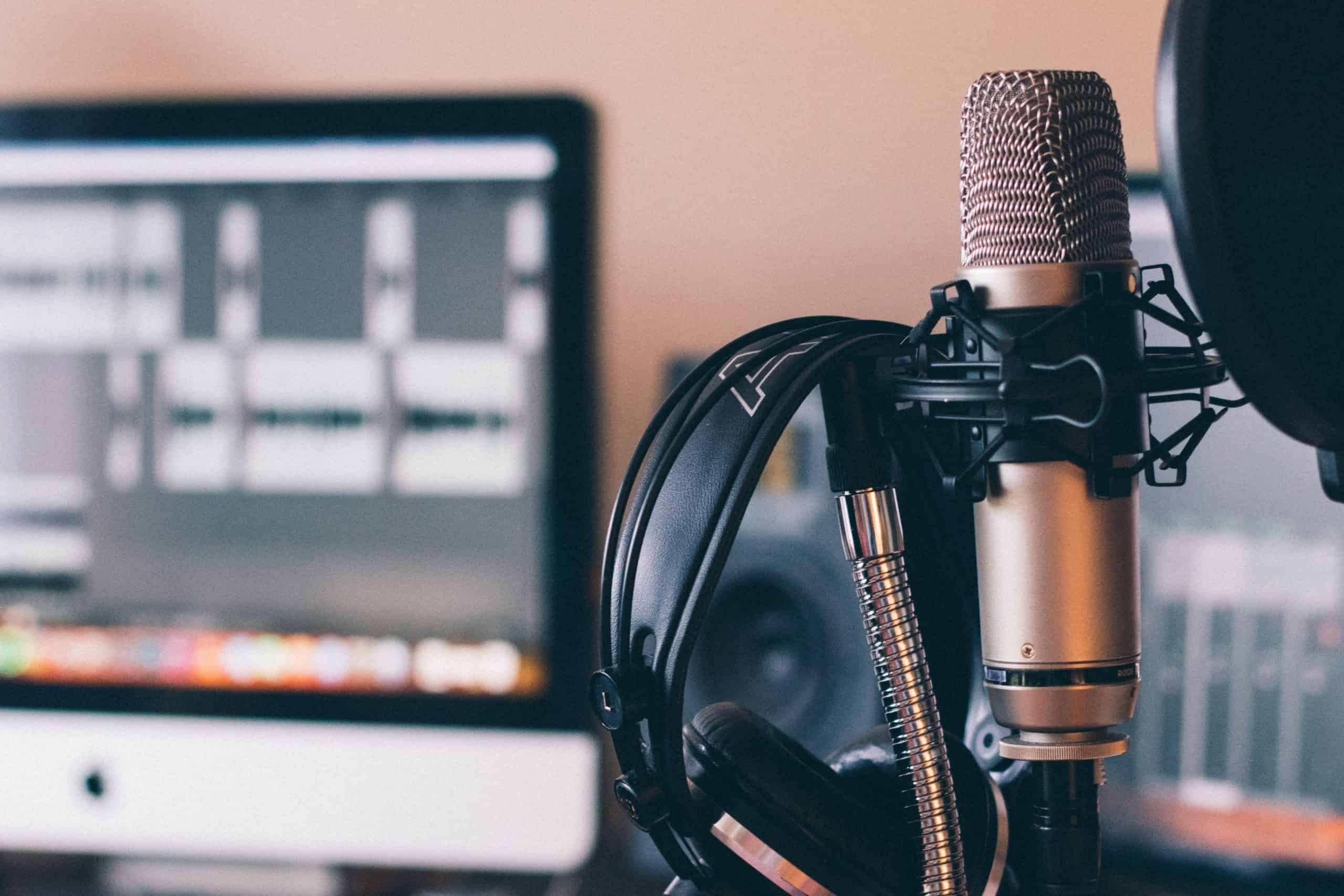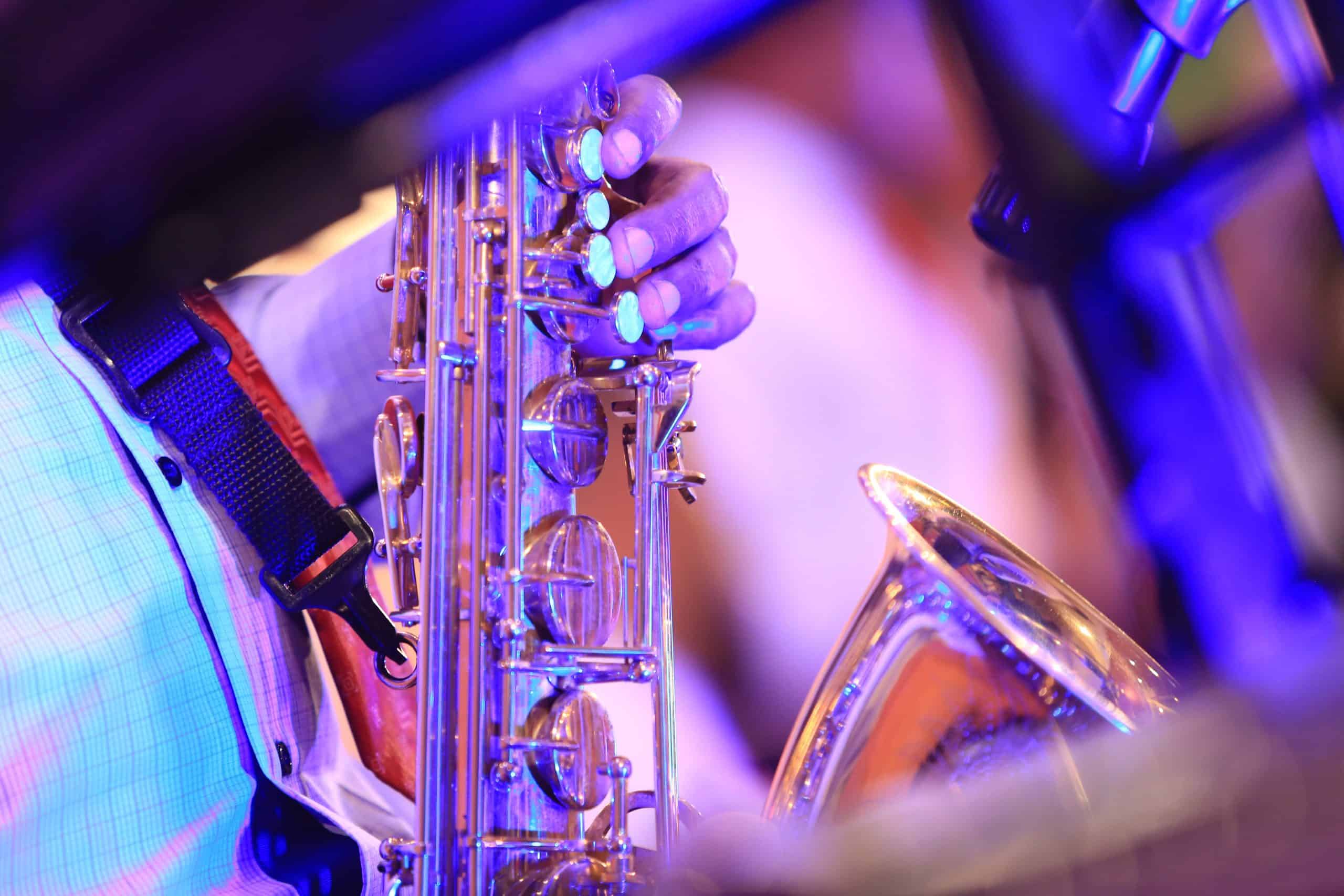Everyone dreams of being a rock star at some point in their life…
And what do rock stars typically have? Electric guitars!
Whether you want to shred like Eddie Van Halen or Eric Clapton, or you are more of a rhythm rock and roller like Johnny Ramone or John Lennon, you can achieve your guitar goals on this electric instrument.
That being said, let’s take a look at the fundamentals.
Page Contents:
Guitar Basics
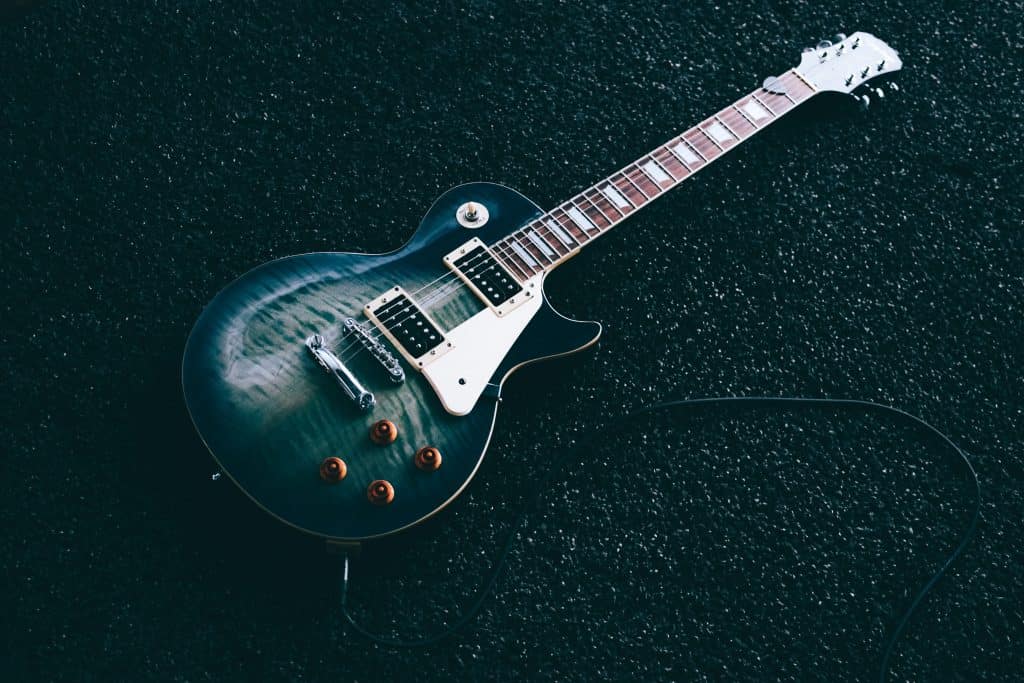
Scales
Most people start out with scales to begin their exploration of the guitar. If you start with a guitar teacher, you’ll get a foundation of the musical staff and basic notes. Guitars are typically tuned to “EADGBE” or standard tuning. If you are able to begin learning where the notes fall on the neck of the guitar, you’ll have an easier time playing chords and eventually learning songs.
You’ll also learn the fretboard and how to form beginning chords like A B C D and E.
(You’d be surprised how many songs consist of just two or three chords).
Chords
This brings us to the foundation of guitar playing – chords.
If you listen to your favorite songs, they are built on chords. If you learn just four, you can probably play songs by The Beatles, Green Day, Nirvana, The Rolling Stones, and even Bruce Springsteen.
Sometimes guitar playing is based more on the spirit of how you play, rather than your “technique.”
You can learn all the music theory in the world, but if you’re not passionate about what you’re playing, you won’t be successful in learning the guitar.
Check out some chord books or tabs online to explore chord structures and different styles of guitar playing.
Style
Do you want to be a shredder or a rhythm expert? Do you want to be more of a Jimi Hendrix or a Johnny Ramone? It’s okay if you have no idea. Do some research on which guitar styles might suit you.
Common styles include:
- metal
- jazz
- punk
- pop
- funk
- and soul.
You can look up bands from all kinds of genres and check out the guitar playing. If you’re interested in funk – take a look at guitarists like Prince.
If you love the sound of crunchy, rough chords you might want to check out guitarists like Joe Strummer of the Clash, Johnny Ramone of the Ramones, and Billie Joe Armstrong of Green Day.
For a huge shredder approach, you have to check out Jimi Hendrix and Eddie Van Halen. Other guitar gods include Brian May of Queen and Eric Clapton.
Soloing
Speaking of guitar gods, do you want to solo? Learning music theory will be your best friend if you are planning on becoming a solo master.
We highly recommend guitar lessons. Every guitar player can benefit from lessons. From beginner to professional, you can always learn more about your instrument. Search up local music schools to find suitable teachers. Some music schools even have teachers that deal in specific styles. They can teach you how to play your favorite songs, and give you the foundational technique to get your soloing chops.
Songwriting/Playing Songs
Once you have a great foundation for playing, you can start learning your favorite songs and even write your own.
If you can string chords together you can create a song. It’s a great experience for your guitar training to be able to write something of your own.
There are a lot of songwriting resources online that can help you get started.
Here are a few we recommend:
- Ditto – Great Songwriting Tips
- Song Starters
- Open Mic’s Lyric Tips
Can I teach myself electric guitar?
You can definitely teach yourself guitar. It’s not easy, but with modern YouTube tutorials and websites with free resources, it’s a lot easier than it was even 10 years ago.
Here are a few resources that can help you begin your self-teaching guitar journey.
- JustinGuitar – This website offers guitar lessons for all levels. Each lesson is made to help you with guitar fundamentals as well as style.
- AcousticGuitar – This lesson set is great for beginners.
- Fender Play – You can’t get anymore pro than this. Fender makes guitars for everyone and wants to empower everyone to play.
How long does it take to learn electric guitar by yourself?

You can theoretically learn enough chords to play a bunch of songs in a matter of a few months. If you practice hard you can turn months into weeks.
Commonly here’s the timeline for mastering the basics of the guitar:
Month 1: You’ll learn how to hold the instrument, proper hand positioning, as well as the basic scales and notes of the guitar.
Month 2: You will be able to form chords and play basic chord changes. You’ll probably still be pretty clunky on the instrument and not have the dexterity to solo.
Month 3: You’ll become more comfortable with chord changes and have more songs under your belt. You may even begin some foundational soloing within major keys.
Month 4: Around month 4 or 5 you can begin exploring different styles of guitar. Your foundation is very important. So if you skip over vital skills in the first few months, it’ll be so much harder to get good in month four. This is when you can figure out what kind of guitar player you are becoming. Are you a little more geared toward lead guitar playing and figuring out if you’re more suited for it.
Month 5: You now have the foundational tools to play most entry-mid-level songs with chords. You can probably play a few tunes by The Beatles, The Rolling Stones, Green Day, Blink 182, and even Nirvana. There is a world of possibility past month 5 in guitar. If you keep going you’ll learn more riffs, ways of playing, styles of playing, and you could develop your own unique style too. Listen to your favorite artists and flourish!
Month 6: Maintain and keep your guitar lessons/practice tight. If you really want to get good at the electric guitar you have to make a regular practice of it. We suggest grabbing a practice amp (small, low volume, but can crank if needed) so that you can hear the guitar as intended.
Here are a few amps we recommend:
- Orange Mini Crush: From Alkaline Trio to everyone, the Orange series of amplifiers give an amazing Brit-rock crunch to every guitar. This baby amp is only $69 and its color and design alone can make it a cool piece to have in any room.
- Marshall MG10G 10W: This is a smaller Marshall that packs a big rock and roll punch. If you want to rip it, this is the practice amp for you. It can give you a stadium sound on a smaller scale for just $99.
- Fender Frontman: This is the basic practice amp that most people start out with. Its knobs are easy to navigate. It even comes with a 20-foot cord to plug in your guitar. It’s a great package deal that can often come free with the purchase of a Stratocaster or even a Squier Strat of the same body-type. It retails for $79.
Is it easy to learn to play electric guitar?
If you’ve made it this far in this article, you know that learning the electric guitar isn’t an easy feat, but it is manageable with the right tools.
If you focus on your routine and develop a daily practice you can learn faster.
Here are a few daily routines that can help you out on YouTube:
- 10 Daily Guitar Exercises: This is a great warm-up.
- 3 Daily Guitar Practices: A quick warmup to do when you’re able to sit down with the guitar for 10 minutes. Even if you only practice for that long, you can still improve your skills on a daily and weekly basis.
- 5 Things I Wish I Knew as a Beginner Guitar Player: This video is great to watch anytime in your guitar experience, even if you have been playing for two years or two days. It’s always good to get a fundamental reminder now and then.
Is playing guitar attractive?
You just need to look at rockstars like Billie Joe Armstrong of Green Day, Frank Iero of My Chemical Romance, Keith Richardson of the Rolling Stones, Jimi Hendrix, etc. Of course, guitar playing is attractive!
Aesthetically, playing guitar is attractive, but more importantly, it’s attractive to the mind. Playing an instrument can make a huge psychological impact on you.
According to Chasing Sound, guitar playing and instruments, in general, can boost things like:
- Memory
- Concentration
- Eye-Hand Coordination
- Anxious Thoughts
- Fitness
- Less Stress
If you’re considering playing guitar, these tips can help you get a great organic start.
Take some lessons, too and you can definitely become a decent guitar player within six months.
Concentration and dedication are key.
Now, start shredding!
